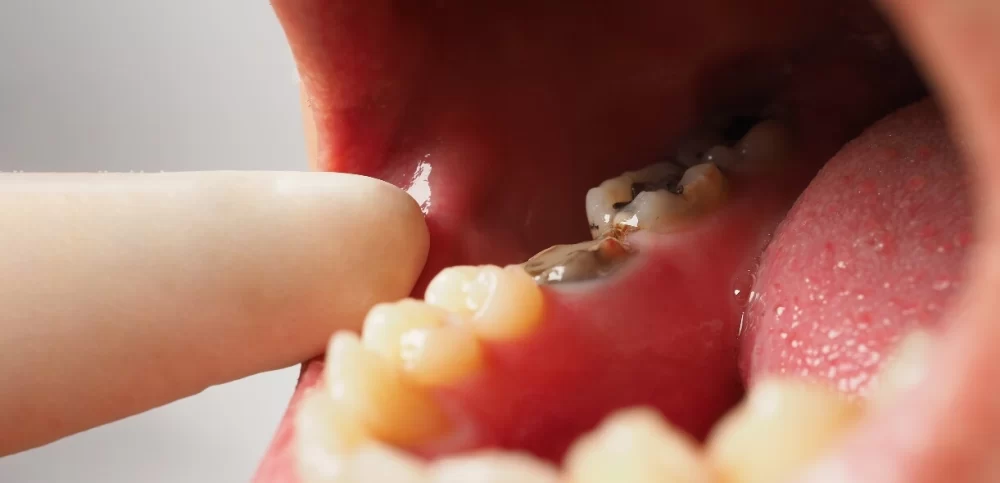 :
:- Understanding Wisdom Tooth Pain
- What Causes a Wisdom Tooth Ache?
- Effective Home Remedies for Wisdom Tooth Pain
- When to Seek Professional Dental Care
- Real-Life Case Study: A Wisdom Tooth Pain Experience
- Preventing Future Wisdom Tooth Pain
1. Understanding Wisdom Tooth Pain
Wisdom tooth pain can be an incredibly uncomfortable experience. Typically, the pain is associated with the eruption or impaction of the third molars, commonly referred to as wisdom teeth. These teeth generally emerge in your late teens or early twenties, but in some cases, they may not emerge at all. When they do appear, they can lead to discomfort, swelling, and pain. Understanding the cause of your wisdom tooth pain is the first step toward finding relief.
2. What Causes a Wisdom Tooth Ache?
There are several factors that can contribute to a wisdom tooth ache:
- Impaction: If a wisdom tooth is impacted (unable to fully emerge through the gum), it can lead to intense pain and discomfort. The tooth may press against adjacent teeth or become trapped under the gum.
- Infection: Bacteria can enter the area around an impacted wisdom tooth, leading to infection, swelling, and severe pain.
- Gum Disease: As wisdom teeth emerge, they can be difficult to clean properly, leading to a buildup of plaque and bacteria, resulting in gum inflammation and pain.
- Cavity or Tooth Decay: Wisdom teeth that are hard to reach can develop cavities, contributing to toothache and general discomfort.
3. Effective Home Remedies for Wisdom Tooth Pain
While it’s always important to seek professional dental care when needed, there are several home remedies you can try to alleviate wisdom tooth pain:
- Saltwater Rinse: A warm saltwater rinse can help reduce swelling and flush out bacteria from the affected area, providing temporary relief.
- Cold Compress: Applying a cold compress or ice pack to the outside of your cheek can help numb the area and reduce inflammation.
- Pain Relievers: Over-the-counter pain relievers like ibuprofen or acetaminophen can help manage the pain temporarily. Be sure to follow the recommended dosage instructions.
- Clove Oil: Clove oil has natural analgesic properties and can be applied directly to the painful area to reduce discomfort. Simply dip a cotton ball in the oil and apply it to the gum near the wisdom tooth.
- Hydrogen Peroxide Rinse: A diluted hydrogen peroxide rinse can help clean the area around the wisdom tooth and reduce infection, providing some relief from pain and swelling.
4. When to Seek Professional Dental Care
While home remedies can help manage temporary wisdom tooth pain, there are times when you need to seek professional dental care. Consider seeing a dentist if:
- The pain becomes severe or persistent: If the pain doesn’t subside after a few days or becomes worse, it may indicate a more serious issue, such as an infection or impaction.
- Swelling worsens: Excessive swelling, especially if accompanied by fever, could be a sign of an infection that requires antibiotics or other dental interventions.
- You have difficulty opening your mouth: This could indicate that the infection is spreading, or the wisdom tooth is severely impacted.
- The tooth is infected: If you notice pus or an unpleasant taste in your mouth, you may have an infected wisdom tooth that requires medical attention.
5. Real-Life Case Study: A Wisdom Tooth Pain Experience
Consider the case of Sarah, a 25-year-old woman who began experiencing sharp pain in the back of her mouth. After a few days, the pain intensified, and her gums became swollen and tender. She tried several home remedies, including saltwater rinses and applying ice packs, but the pain persisted. Sarah visited her dentist, who confirmed that her wisdom tooth was impacted and needed to be extracted. After the extraction, Sarah felt immediate relief, and the pain disappeared completely. Her case highlights the importance of seeking professional dental care if home remedies are ineffective.
6. Preventing Future Wisdom Tooth Pain
While it’s not always possible to prevent wisdom tooth pain, there are steps you can take to reduce the likelihood of future issues:
- Regular Dental Checkups: Regular visits to the dentist can help monitor the development of your wisdom teeth and catch potential problems early.
- Good Oral Hygiene: Maintaining a good oral hygiene routine, including brushing and flossing, can help prevent infections and decay in the wisdom tooth area.
- Consider Removal: If your wisdom teeth are prone to causing problems, your dentist may recommend removing them before they cause pain or infection.
At Dentistry Toothtruth, we offer comprehensive dental care, including wisdom tooth evaluations and extractions. If you're experiencing pain from your wisdom teeth, we can help you find the right treatment options to get back to feeling your best.







 Gentle Dental Riverside Tyler Village4.0 (122 review)
Gentle Dental Riverside Tyler Village4.0 (122 review) Dr. EBI D. Nikjoo, DDS2.0 (24 review)
Dr. EBI D. Nikjoo, DDS2.0 (24 review) Parkside Dental & Implant Center4.0 (80 review)
Parkside Dental & Implant Center4.0 (80 review) Affiliated Dental Specialists4.0 (48 review)
Affiliated Dental Specialists4.0 (48 review) Surprise Dental & Denture4.0 (777 review)
Surprise Dental & Denture4.0 (777 review) That Broadway Smile5.0 (1689 review)
That Broadway Smile5.0 (1689 review) The Importance of Oral Health Education During Pregnancy for a Healthy Pregnancy
The Importance of Oral Health Education During Pregnancy for a Healthy Pregnancy Best Tips for Brushing Your Teeth Properly for Healthy Gums: Essential Techniques for Oral Health
Best Tips for Brushing Your Teeth Properly for Healthy Gums: Essential Techniques for Oral Health Why Skipping Dental Checkups Can Lead to Bigger Oral Health Problems
Why Skipping Dental Checkups Can Lead to Bigger Oral Health Problems Advantages of Porcelain Dental Restorations
Advantages of Porcelain Dental Restorations How Can Diabetes Cause Tooth and Gum Problems? Preventing and Managing Oral Health Issues
How Can Diabetes Cause Tooth and Gum Problems? Preventing and Managing Oral Health Issues Healthy Habits for Promoting Good Oral Health and Hygiene: Tips for a Healthy Smile
Healthy Habits for Promoting Good Oral Health and Hygiene: Tips for a Healthy Smile